Importing goods from China to Nigeria offers tremendous opportunities for businesses looking to expand their product offerings and tap into a global supply chain. With a robust trade relationship that continues to flourish, navigating the complexities of customs procedures and logistics can seem daunting. However, understanding the import process, from selecting reliable suppliers to ensuring compliance with Nigerian customs regulations, is crucial for success. In this comprehensive guide, we will walk you through the essential steps and best practices for importing, helping you avoid common pitfalls and maximize your profitability.
Related Article : Shipping From China To Nigeria
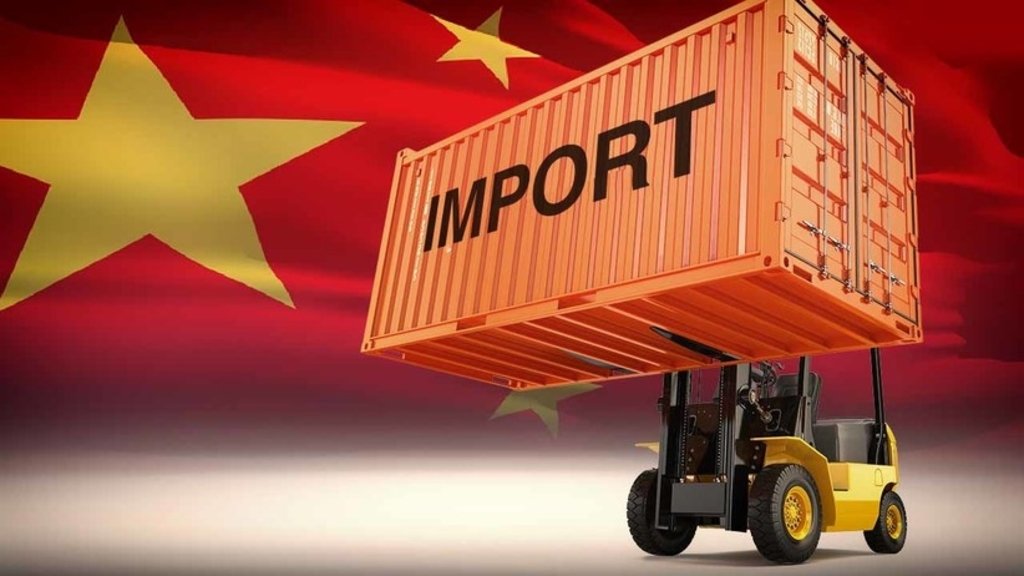
Understanding the Import Process from China to Nigeria
China and Nigeria share a robust trade relationship that has been growing steadily over the years. As one of Africa’s largest economies, Nigeria is a key partner for China in terms of trade and investment. In 2023, bilateral trade between the two countries reached approximately $22.5 billion, with Nigeria importing a significant portion of its goods from China, including electronics, machinery, and textiles. The increasing demand for Chinese products in Nigeria underscores the importance of understanding the intricacies of the import process.
Key Factors Influencing Imports
Several factors influence imports from China to Nigeria, including:
- Market Demand: Understanding what products are in demand can help importers make informed decisions.
- Currency Fluctuations: The exchange rate between the Chinese Yuan and the Nigerian Naira can impact cost-effectiveness.
- Shipping Costs: The choice of shipping method, whether it be Ocean Freight or air freight, plays a significant role in overall expenses.
- Political and Economic Stability: Both countries’ political climates can impact trade, as changes in policy may affect tariff rates and import quotas.
Steps to Import Goods from China to Nigeria
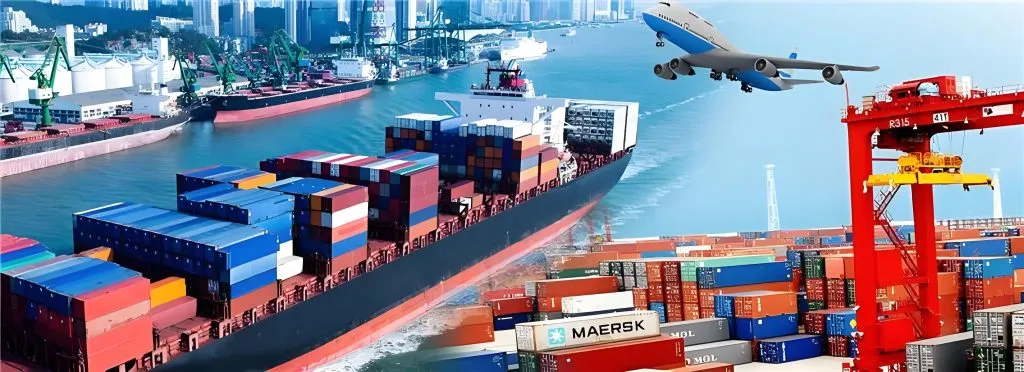
Step 1: Research and Select Suppliers
Conduct thorough research to identify reputable suppliers in China. Utilize online platforms such as Alibaba or Global Sources, and consider factors like supplier ratings, reviews, and verified certifications. Establishing a good relationship with suppliers can lead to favorable terms and better pricing.
Step 2: Choose a Reliable Freight Forwarder
The significance of choosing a reliable freight forwarder cannot be overstated. A competent freight forwarder can streamline the import process, handling logistics, documentation, and customs clearance efficiently.
Key factors to keep in mind when selecting a freight forwarder include:
- Experience and Expertise: Choose a freight forwarder with a proven track record in shipping from China to Nigeria.
- Service Offerings: Ensure they provide comprehensive services, such as Ocean Freight, customs clearance, and insurance.
- Customer Support: Look for a forwarder that offers excellent customer service, ensuring your inquiries and concerns are addressed promptly.
For those looking for a trusted partner, Dantful International Logistics is an excellent choice. They provide A Highly Professional, Cost-effective And High-quality, One-Stop International Logistics Service tailored for global traders.
Step 3: Understand Import Duties and Taxes
Import duties and taxes are vital considerations for any importing business. In Nigeria, the tariff classification determines the duty rate applicable to goods. Importers must calculate these costs to ensure profitability. Familiarizing yourself with the Harmonized System (HS) codes relevant to your products can help in calculating these taxes accurately.
Step 4: Obtain Necessary Documentation
Proper documentation is crucial for smooth customs clearance. Required documents may include:
- Commercial Invoice: Details the transaction between buyer and seller.
- Packing List: Provides information about the shipment’s contents.
- Bill of Lading: A contract between the shipper and the carrier.
- Import Permit: Required for certain goods.
Additionally, having an EORI number (Economic Operators Registration and Identification number) is essential for businesses involved in international trade. This number simplifies the customs process and ensures compliance with Nigerian regulations.
Step 5: Choose the Right Shipping Method
Finally, selecting the appropriate shipping method is critical based on your budget, time constraints, and nature of the goods being imported. Options include:
- Ocean Freight: Ideal for large shipments; it is cost-effective but slower.
- Air Freight: Faster but more expensive, suitable for time-sensitive goods.
By following these steps and partnering with a reliable freight forwarder like Dantful International Logistics, you can ensure a smooth and efficient import experience.
READ MORE:
- Shipping From China To Algeria
- Shipping From China To Angola
- Shipping From China To Morocco
- Shipping From China To Nigeria
- Shipping From China To Kenya
- Shipping From China To Tanzania
- Shipping From China To South Africa
Navigating Customs Clearance in Nigeria
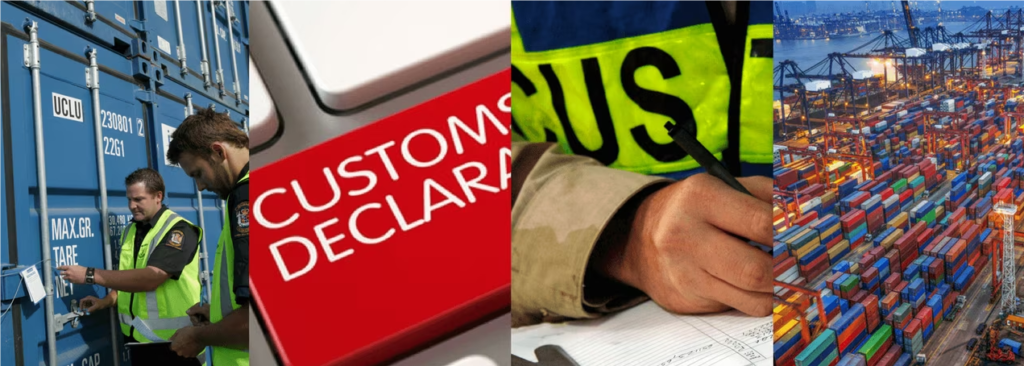
Understanding Nigerian Customs Procedures
Navigating customs clearance in Nigeria is a crucial component of the import process. The Nigerian Customs Service (NCS) is the governing authority responsible for regulating the importation of goods into the country, ensuring compliance with local laws and international trade agreements.
When goods arrive at Nigerian ports, they undergo a customs clearance process that includes inspection, valuation, and classification. The NCS assesses the cargo based on its declared value and the applicable tariff code, which determines the amount of duties and taxes due. Importers are required to submit various documents, including the Bill of Lading, Commercial Invoice, Packing List, and any permits or licenses necessary for specific goods.
Understanding the specific procedures and regulations associated with Nigerian customs can significantly streamline the import process. It’s advisable for importers to stay updated on any changes to customs regulations and to engage with customs brokers who can provide expert guidance.
Tips for Smooth Customs Clearance
To facilitate a smooth customs clearance process in Nigeria, importers should consider the following tips:
- Accuracy in Documentation: Ensure all documents are accurately filled out and contain correct values and descriptions of the goods. Any inaccuracies can lead to delays or penalties.
- Pre-Arrival Assessment: Utilize the Pre-Arrival Assessment Report (PAAR) system, which allows for the assessment of goods before they arrive at the port. This can expedite the clearance process and reduce the likelihood of inspections.
- Engage a Customs Broker: Hiring a knowledgeable customs broker can help navigate the complexities of customs regulations, ensuring compliance with all requirements. They can also assist in resolving any issues that may arise during the clearance process.
- Stay Updated on Tariffs and Taxes: Being aware of the current tariff rates and any applicable changes can help budget for costs accurately. Utilize resources from the NCS website to stay informed.
- Utilize Technology: Leverage technology solutions that facilitate documentation and tracking of shipments to ensure timely and accurate submission of customs paperwork.
Common Pitfalls and How to Avoid Them
Importing goods can be fraught with challenges, and being aware of common pitfalls can save time and money. Here are some prevalent issues faced by importers and strategies to avoid them:
Common Documentation Errors
One of the most frequent issues during customs clearance is documentation errors. Mislabeling products, incorrect values, and missing documents can cause significant delays or lead to the rejection of shipments.
How to Avoid Documentation Errors:
- Double-Check Documents: Before submission, review all documents thoroughly to ensure they match the information provided on the commercial invoices and bills of lading.
- Utilize Checklists: Create a checklist of required documents to ensure nothing is overlooked.
Misunderstanding of Tariffs and Taxes
Importers often misunderstand the tariffs and taxes applicable to their goods, leading to unexpected costs and compliance issues. Different products may incur different tariff rates, and additional taxes such as Value Added Tax (VAT) can apply.
How to Avoid Tariff Misunderstandings:
- Research Tariff Codes: Familiarize yourself with the Harmonized System (HS) codes relevant to your goods. This knowledge can help accurately determine applicable duties.
- Consult Experts: Engage with customs brokers or logistics experts, such as those at Dantful International Logistics, who can provide insights into the complexities of tariffs and taxes.
Dantful International Logistics Services:
- Dantful Ocean Freight Services
- Air Freight From China
- Amazon FBA Freight Forwarding
- WAREHOUSE Services
- One-Stop Customs Clearance Solution
- Cargo Insurance Services in China
- DDP Shipping Services By Dantful Logistics
- Out of Gauge Cargo Transportation Shipping Services
Best Practices for Successful Importing
Successful importing requires a strategic approach that encompasses thorough planning and adherence to regulations. Here are some best practices to ensure a successful importing experience:
- Conduct Thorough Market Research: Before importing goods, carry out market research to understand demand, competition, and pricing strategies. This knowledge will guide your purchasing decisions.
- Build Strong Supplier Relationships: Establishing trustworthy relationships with suppliers can lead to more favorable terms, smoother order processing, and reliable product quality.
- Incorporate Risk Management: Consider obtaining insurance for shipments to safeguard against potential losses. Understanding the risks involved in international shipping can help mitigate issues.
- Leverage Technology: Use digital tools for inventory management, shipping updates, and documentation processing to enhance efficiency and reduce errors.
- Choose the Right Logistics Partner: Selecting a reliable logistics provider is essential for navigating the complexities of international shipping. Dantful International Logistics offers comprehensive services, including Ocean Freight and customs clearance, to assist importers in navigating the entire process seamlessly.
By implementing these best practices, importers can optimize their operations, reduce the risk of delays, and achieve successful and profitable importing from China to Nigeria.
FAQs
1. What are the key steps involved in importing goods from China to Nigeria?
The key steps in importing goods from China to Nigeria include researching and selecting suppliers, choosing a reliable freight forwarder, understanding import duties and taxes, obtaining necessary documentation, and selecting the right shipping method. Each of these steps is crucial for ensuring a smooth import process.
2. How can I ensure compliance with Nigerian customs regulations?
To ensure compliance with Nigerian customs regulations, you should familiarize yourself with the requirements set by the Nigerian Customs Service (NCS). It’s essential to have all necessary documents ready, accurately declare the value and nature of your goods, and consider utilizing the services of a customs broker who can guide you through the process.
3. What documents are required for customs clearance in Nigeria?
Essential documents for customs clearance in Nigeria include the Commercial Invoice, Packing List, Bill of Lading, Import Permit (when applicable), and any licenses required for specific goods. Additionally, obtaining an EORI number can facilitate the customs process.
4. What are common pitfalls to avoid when importing from China to Nigeria?
Common pitfalls include documentation errors, misunderstandings regarding tariffs and taxes, and lack of thorough market research. To avoid these issues, ensure accurate documentation, stay informed about tariff rates, and conduct proper research before making purchasing decisions.
5. Why should I choose Dantful International Logistics as my freight forwarder?
Dantful International Logistics provides a highly professional, cost-effective, and high-quality one-stop international logistics service. With expertise in customs clearance, ocean freight, and comprehensive logistics solutions, Dantful can help you navigate the complexities of importing from China to Nigeria efficiently.
References
- Nigerian Customs Service (NCS) – Official Website
- World Trade Organization (WTO) – Trade Policy Review: Nigeria

Young Chiu is a seasoned logistics expert with over 15 years of experience in international freight forwarding and supply chain management. As CEO of Dantful International Logistics, Young is dedicated to providing valuable insights and practical advice to businesses navigating the complexities of global shipping.
The other language versions of this article
- الدليل النهائي لإجراءات الاستيراد من الصين إلى نيجيريا
- De ultieme gids voor importprocedures van China naar Nigeria
- Le guide ultime des procédures d’importation de la Chine vers le Nigeria
- Der ultimative Leitfaden für Importverfahren von China nach Nigeria
- La guida definitiva alle procedure di importazione dalla Cina alla Nigeria
- La guía definitiva para los procedimientos de importación de China a Nigeria
- O guia definitivo para procedimentos de importação da China para a Nigéria
- Полное руководство по процедурам импорта из Китая в Нигерию
- Çin’den Nijerya’ya İthalat Prosedürlerine İlişkin Temel Kılavuz

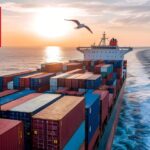




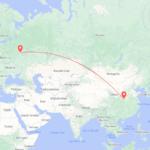



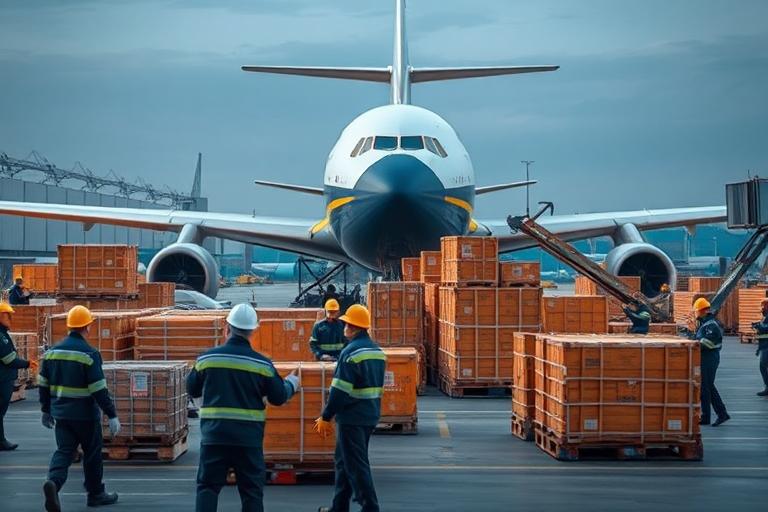
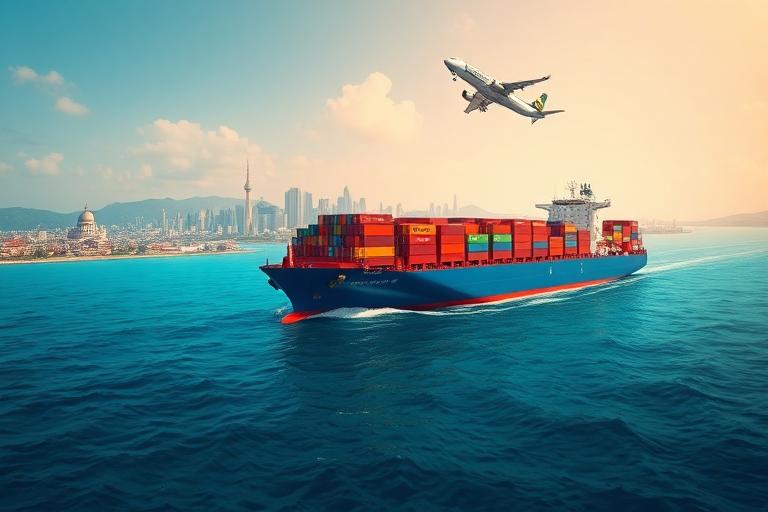

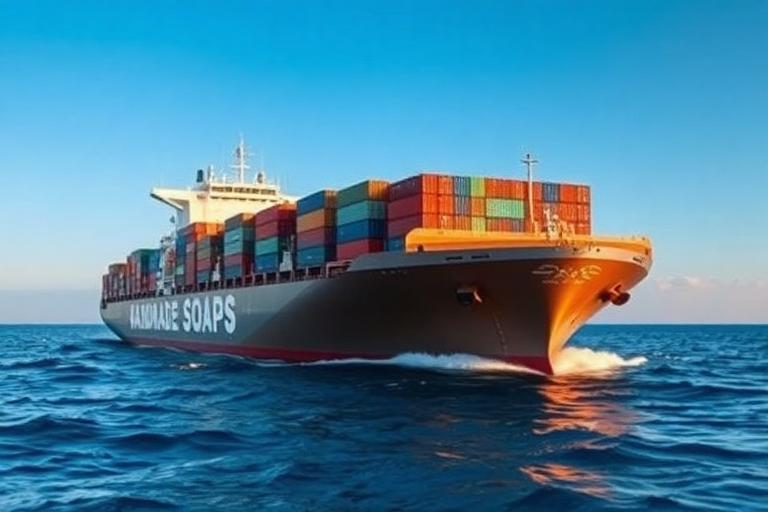
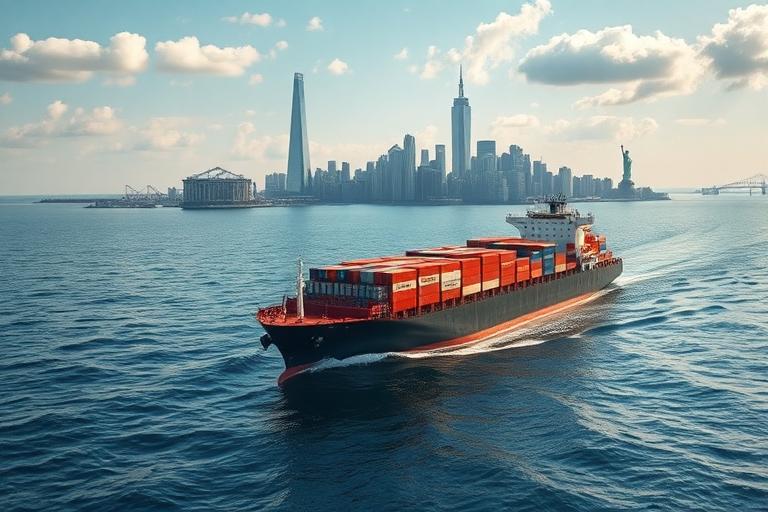





 Afrikaans
Afrikaans Shqip
Shqip አማርኛ
አማርኛ العربية
العربية Հայերեն
Հայերեն Azərbaycan dili
Azərbaycan dili Euskara
Euskara Беларуская мова
Беларуская мова বাংলা
বাংলা Bosanski
Bosanski Български
Български Català
Català Cebuano
Cebuano Chichewa
Chichewa 简体中文
简体中文 繁體中文
繁體中文 Corsu
Corsu Hrvatski
Hrvatski Čeština
Čeština Dansk
Dansk Nederlands
Nederlands English
English Esperanto
Esperanto Eesti
Eesti Filipino
Filipino Suomi
Suomi Français
Français Galego
Galego ქართული
ქართული Deutsch
Deutsch Ελληνικά
Ελληνικά Kreyol ayisyen
Kreyol ayisyen Harshen Hausa
Harshen Hausa Ōlelo Hawaiʻi
Ōlelo Hawaiʻi עִבְרִית
עִבְרִית हिन्दी
हिन्दी Hmong
Hmong Magyar
Magyar Íslenska
Íslenska Igbo
Igbo Bahasa Indonesia
Bahasa Indonesia Gaeilge
Gaeilge Italiano
Italiano 日本語
日本語 Basa Jawa
Basa Jawa ಕನ್ನಡ
ಕನ್ನಡ Қазақ тілі
Қазақ тілі ភាសាខ្មែរ
ភាសាខ្មែរ 한국어
한국어 كوردی
كوردی Кыргызча
Кыргызча ພາສາລາວ
ພາສາລາວ Latin
Latin Latviešu valoda
Latviešu valoda Lietuvių kalba
Lietuvių kalba Lëtzebuergesch
Lëtzebuergesch Македонски јазик
Македонски јазик Malagasy
Malagasy Bahasa Melayu
Bahasa Melayu മലയാളം
മലയാളം Maltese
Maltese Te Reo Māori
Te Reo Māori मराठी
मराठी Монгол
Монгол ဗမာစာ
ဗမာစာ नेपाली
नेपाली Norsk bokmål
Norsk bokmål پښتو
پښتو فارسی
فارسی Polski
Polski Português
Português ਪੰਜਾਬੀ
ਪੰਜਾਬੀ Română
Română Русский
Русский Samoan
Samoan Gàidhlig
Gàidhlig Српски језик
Српски језик Sesotho
Sesotho Shona
Shona سنڌي
سنڌي සිංහල
සිංහල Slovenčina
Slovenčina Slovenščina
Slovenščina Afsoomaali
Afsoomaali Español
Español Basa Sunda
Basa Sunda Kiswahili
Kiswahili Svenska
Svenska Тоҷикӣ
Тоҷикӣ தமிழ்
தமிழ் తెలుగు
తెలుగు ไทย
ไทย Türkçe
Türkçe Українська
Українська اردو
اردو O‘zbekcha
O‘zbekcha Tiếng Việt
Tiếng Việt Cymraeg
Cymraeg יידיש
יידיש Yorùbá
Yorùbá Zulu
Zulu